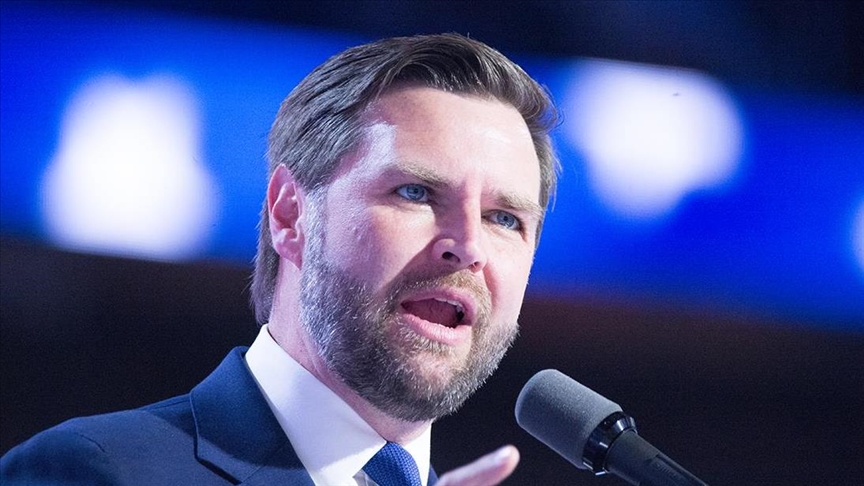 US Vice President JD Vance
US Vice President JD Vance
WASHINGTON
US Vice President JD Vance met with Alice Weidel, the leader of Germany’s far-right Alternative for Germany (AfD) party, during his trip to Germany, according to vice president’s office Friday.
Vance also held meetings with leaders of major German political parties as part of his visit, an official from his office said.
Earlier in the day, he met with German President Frank-Walter Steinmeier and Christian Democratic Union (CDU) leader Friedrich Merz, said the official.
The vice president’s trip follows his meeting with German Chancellor Olaf Scholz earlier this week in Paris, according to the official.
In a fiery speech at the Munich Security Conference earlier on Friday, Vance criticized European politicians, institutions, and courts for what he described as a retreat from democratic principles.
Vance specifically criticized the recent annulment of the presidential election result in Romania, arguing that it undermined democratic foundations.
He also expressed concern over the exclusion of far-right AfD from political processes in Germany, arguing that such actions demonstrated a troubling trend of European countries dismissing their citizens' will.
Germany's defense minister sharply criticized Vance on Friday for claiming that European governments enforce anti-democratic policies and suppress critical voices.
“I must respond to the speech we heard earlier from the US vice president,” Social Democrat Boris Pistorius said, adding that while European democrats take a firm stance against right-wing extremism, they remain fully committed to basic rights and freedoms.
He emphasized that in Germany's democracy, every opinion has a voice, and far-right parties like the AfD continue their election campaigns today, just as other parties do.
Vance's remarks came after Elon Musk, a close ally of US President Donald Trump, also backed Vance's comments by posting on X: “Make Europe Great Again! MEGA, MEGA, MEGA.”
The anti-immigrant AfD currently polls at around 20%, positioning it to become the second-largest party in the Feb. 23 elections. However, it will likely remain outside any coalition government, as all other parties have refused to cooperate with the right-wing extremists.
The center-right CDU/CSU alliance, led by Friedrich Merz, holds a commanding lead with 30% in recent surveys. Chancellor Olaf Scholz's Social Democrats (SPD) stands at 16%, with their coalition partner, the Greens, at 14%.
Though the CDU/CSU alliance leads the polls, they will need to form a coalition government. Merz has not yet indicated whether he would prefer to partner with the SPD or the Greens.
Anadolu Agency website contains only a portion of the news stories offered to subscribers in the AA News Broadcasting System (HAS), and in summarized form. Please contact us for subscription options.







